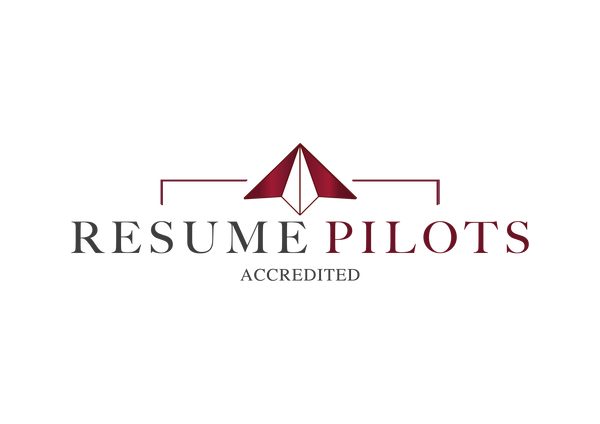
Crafting a Strong Resume for Financial Software Development
Crafting a professional and compelling resume can be hard for even the most experienced professional. However, there are some key strategies that will help you put your best foot forward when applying for financial software development roles.
In this post, we outline how to structure a resume for fintech and data science roles and provide tips on what goes into making an compelling document that will impress hiring managers.
Understand Your Target Role
The first step in crafting the perfect resume is to understand the role you're applying for. What are the job responsibilities? What core skills are required and what soft skills are expected from candidates in this position?
For instance, if you're applying for a financial software developer position at a company that builds trading platforms, then you should focus on including details about your experience building trading systems on your resume instead of simply mentioning programming languages or frameworks out of context.
Next, consider the technical experience and knowledge base required for the role. Are they seeking someone who understands C++, JavaScript, or Python, for example, or would they consider a candidate who has the ability to quickly learn necessary tools on board via training provided by the company.
Structure Your Resume
There are many different ways to structure your resume, but the most important thing is to have a clear and concise format that highlights your strengths. Here are some tips for structuring your resume:
- Keep it simple by using only one page if possible.
- Use action verbs in all sections of your document, such as "developed" or "managed" instead of "worked on." This approach shows employers that you're an active team member who gets things done.
- Make sure all relevant information is included under each job title (e.g., previous experience with similar software). Consider excluding positions that are not directly relevant entirely to keep your resume neat and easy to read.
Showcase Your Technical Proficiency
Showcase your technical proficiency by listing all of your relevant skills, software used, and certifications earned.
If you have any project-related experience that is relevant for the role in question, this should also be included here. If there are specific projects that showcase your ability to work with financial data or code in an agile environment, include them.
When applying for jobs as a programmer or developer, it’s always best to mention specific languages on your resume so that employers understand the tools you are familiar with.
Outline Quantifiable Achievements
Quantifiable achievements are a must-have for any resume in the field of financial software development services. As such, incorporate as many quantifiable achievements you can, which may include the number of hours worked, number of projects completed, and amount of successful sales.
Make sure that hiring managers know how much work has gone into getting where you are today.
Provide Examples of Soft Skills
As a financial software developer, you'll be working on projects that require teamwork. You need to be able to communicate with other members of your team and work together towards a common goal. A lot of the time, this will involve brainstorming ideas for new features or improvements in existing products.
As such, soft skills are essential for success as a financial software developer. Soft skills include things like communication skills (both written and verbal), problem solving abilities and interpersonal relationships with others in your organization or industry.
As a financial software developer, you'll need to be able to communicate effectively. This involves everything from writing clear and concise code that clearly communicates what it does, to explaining the implications of certain design decisions when presenting them to your team. You'll also need excellent verbal communication skills so that you can easily explain your ideas in meetings with other developers or stakeholders (such as business owners).
However, instead of simply listing these traits on your resume, incorporate specific examples of when you worked on teams and demonstrated clear communication skills. This approach will help recruiters visualize how you will add value and makes your statements more believable.
Mention Projects and Contributions
In this section, you are able to showcase specific projects and contributions you have made to your industry. If you have worked on major projects, list them here and explain how they helped your company or industry. If you haven't worked on any projects, but have made some significant contributions within your team or company, then mention that here as well.
If there are things outside of work that have helped shape who you are today (for example: volunteering), don't hesitate to mention them as well. The more details about yourself that show up on a resume, the better off it will be overall; keep this in mind when choosing what information from your past should go into this section of the document and what should be left out.
This section should be used as a way to show off your skills. List out each skill and explain how you've used them in the past to help others or your company. If you need help deciding what goes here, try searching for job descriptions online and seeing which skills they list as being important for the position you're applying for; then see if you've had any experience with those skills.
Tailor Your Resume for the Company
If you want to stand out from the crowd, it's important to tailor your resume for each company. Consider applying the following tips:
- Match your skills and experience with the job description: If there are certain keywords that appear frequently in the listing, include them on your resume. For example, if you're applying for an accounting software developer role at Google that requires "computer science fundamentals," be sure to naturally incorporate this phrase somewhere on your resume.
- Tailor your resume based on industry standards and company culture: Review examples of industry specific resumes to see how they are structured and how information is presented. A resume that works well for investment banking, for example, may not be as effective for software development. Ensure any industry acronyms and phrasing will resonate with your readers.
You should also make sure that your document looks professional before sending out any applications. Any sloppiness or mistakes on your resume are a red flag for recruiters and may result in them passing on your application.
List Professional Development & Volunteer Experience
After outlining your career history, list any professional development courses or certifications that are relevant to the job that you completed through professional development programs or industry-recognized organizations. If you don’t have relevant courses or certifications, consider highlighting other forms of training such as volunteering or attending conferences.
Outline Honors & Awards
In this section, list and honors and awards that are relevant to the job. You can also list speaking engagements such as guest lectures at universities or conference panels.
Highlight Education
Outline your education and any relevant academic achievements. In this section, you can also mention relevant courses that were part of your degree, academic honors, and on-campus organizations you were a part of.
Fine-Tune and Proofread Your Document
Finalize your resume and proofread it several times. Your final draft should be free of any grammatical errors or typos that could ruin an otherwise well-written document. Take the time to review each line carefully before submitting it.
Get someone else's opinion on your work. Sometimes it can be difficult to understand how a third-party reader will interpret your work, and it can be helpful to ask a friend or recruiter for their perspective.
In Summary
A well-crafted resume is a key tool for landing a new software development role. By following the tips in this article, you’ll be able to craft a resume that highlights your skills and experience while highlighting what makes you stand out from other candidates.
To find out more, visit our website www.resumepilots.com. If you have any further questions, you can either book a consultation call with one of our team, or get in touch via email on team@resumepilots.com

